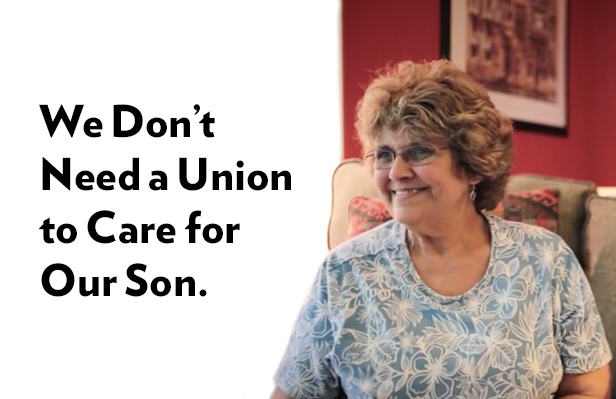Media

Ending the Government Union Skimming Scam
Imagine being disabled or sick and requiring help to bathe, eat, and even move from room to room within your own home. Medicaid, a taxpayer-funded health insurance program helps pay for that. Parents often rely upon this subsidy to care for their disabled children, but now families across America have found a mafia-like middleman demanding a cut: labor unions.
I wonder how many of the [Personal Care Assistants] who are paying dues to the SEIU know that they don’t have to?
Government unions have succeeded in classifying tens of thousands of home health and child care workers—including caregiver parents—as state workers. The result? Millions of dollars for government unions and fewer resources for families. Eleven states authorize this intrusion.
According to the State Policy Network, the total skimmed from government funds each year amounts to $200 million from Medicaid, and $50 million from the Temporary Assistance for Needy Families (TANF) program. But this scheme hasn’t gone unchallenged.
In 2014, affected families challenged the legality of taking union dues from their limited subsidies. Their case ended up at the U.S. Supreme Court. In Harris v. Quinn, justices ruled that home caregivers cannot be forced to pay union dues. The problem, according to Minnesota mother Kris Greene: “I wonder how many of the [Personal Care Assistants] who are paying dues to the SEIU know that they don’t have to?”
Greene, who has cared for her disabled daughter Meredie since the girl’s birth with Rubinstein-Taybi Syndrome in 1992, was one of 27,000 home caregivers forced into the SEIU Healthcare union. A new Minnesota state law classified her as a state employee for the purposes of collective bargaining—a technical term that defines a group of workers who can officially negotiate wages and work conditions with an employer (in this case, a disabled child/adult).
Pennsylvania had a similar fight in 2015, when Gov. Tom Wolf issued an executive order allowing SEIU to unionize 20,000 home care workers and collect dues from members using state resources. Dave Smith, who suffers from muscular dystrophy, and his 25-year home caregiver Don Lambrecht quickly challenged the order with the help of the Fairness Center. Thankfully, the Commonwealth Court deemed the Wolf executive order illegal.
“Dave isn’t just someone I take care of, he is my friend,” Lambrecht said after the court ruling. “I hope this stops the governor’s attempts to involve me in a political game I don’t belong in and never wanted to be a part of.”
Wolf appealed the ruling to the state Supreme Court where the case now awaits a verdict.
Now caregiver families across America hope new federal legislation will also free them from grasping unions—once and for all. U.S. Rep. Cathy McMorris Rodgers (R-Wash.) is drafting legislation to ban dues skimming nationwide.
Unionization doesn’t make sense for home health or child care work. What mother would file a grievance against her disabled child? It’s time to end the skimming of caregivers’ stipends and ensure taxpayer resources serve vulnerable children and adults.